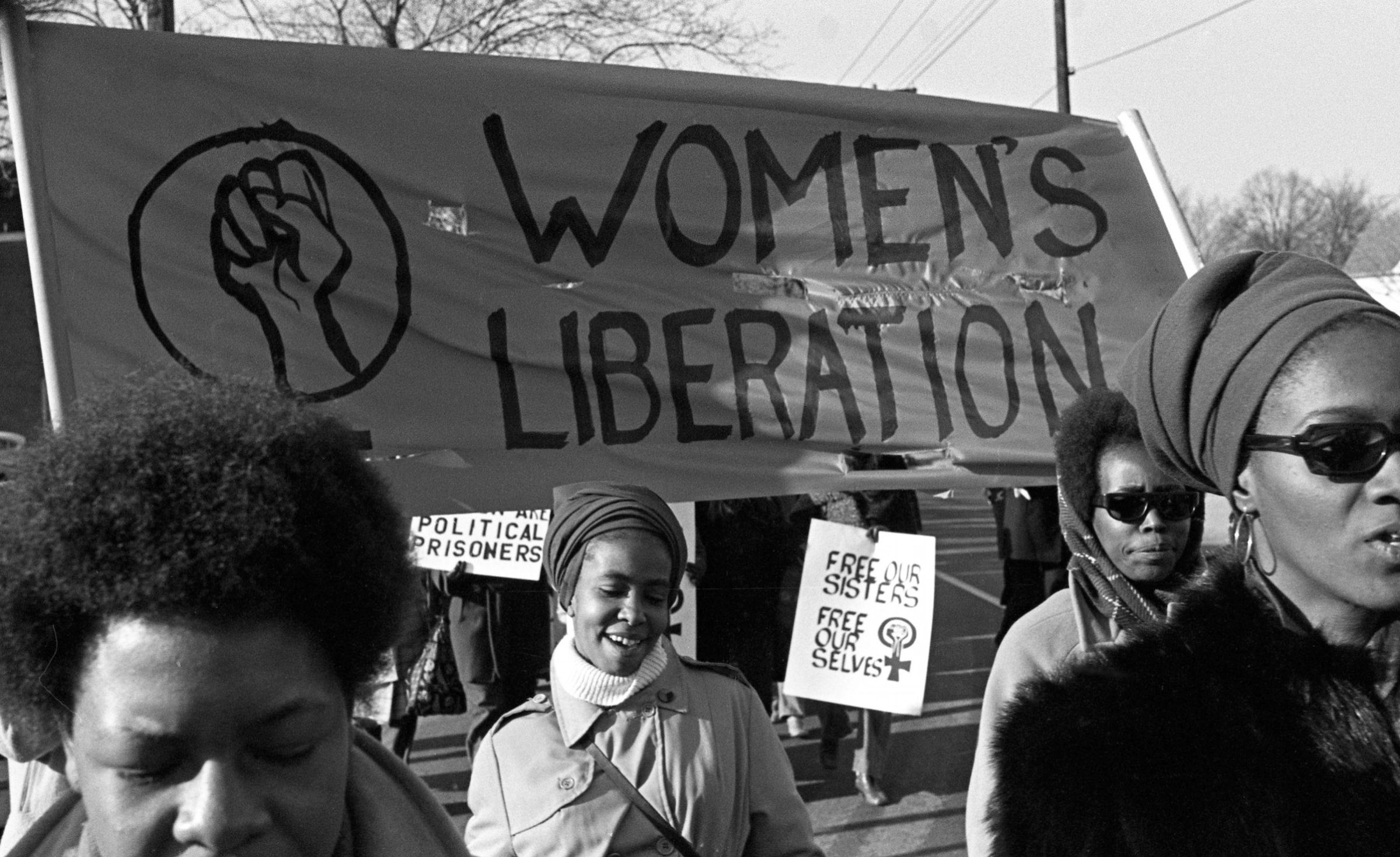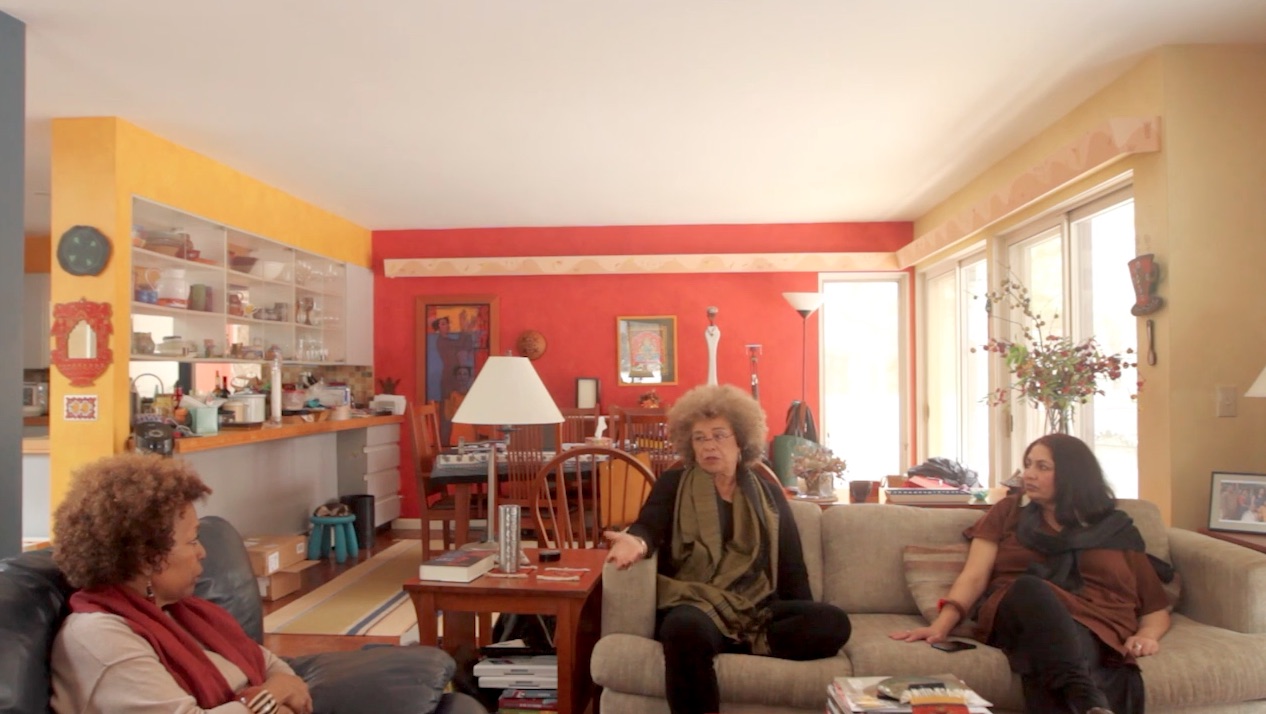
Women’s History Month has been observed in the United States in March for decades, its date unchanging. But as this month draws to a close, it’s worth noting that the women whose stories comprise that history have changed.
The movement to expand feminism beyond the provincialism of mainstream discourse is now in its sixth decade. One place where that change is clear is at the Feminist Freedom Warriors Project (FFW) at Syracuse University, the brainchild of transnational feminist scholars Linda E. Carty and Chandra Talpade Mohanty. Their 2015 survey of transnational feminism was the foundation for FFW, a first-of-its-kind digital video archive focused on the struggles of women of color of the Global South (Africa, India and Latin America) and North (U.S., Canada, Japan). “FFW is a project about cross-generation histories of feminist activism,” its founders, Carty and Mohanty, said in an email, “addressing economic, anti-racist, social justice issues across national borders.”
These scholar-activists crisscrossed state and national borders to engage in “kitchen table conversations” with 28 distinguished feminists ranging from Beverly Guy-Sheftall to Angela Y. Davis, to bring together the stories of “these sister-comrades whose ideas, words, actions and visions of” economic and social justice “continue to inspire us to keep on keeping on.” These women are representative of the trailblazers and torchbearers who challenged the conventional wisdom of mainstream American feminism that came out of the 1960s and ‘70s.

Key to that challenge was the idea of intersectionality, a concept that remains confusing to some despite steadily growing awareness of it.
Mainstream 20th century American feminism — led by people like Betty Friedan, a co-founder of the National Organization for Women (NOW) and bestselling author of The Feminine Mystique, and inspired by the idea that “the personal is political” — made people across the country rethink issues like gender diversity in higher education and reproductive rights. But that feminism was also in dire need of diversity, as it was based on the cultural and historical experiences of middle- and upper-class heterosexual white women. Consequently, issues of race, class, sexuality and ableism were ignored. (Also ignored were issues of immigration, which are personal and political to Carty, a Canadian of Caribbean descent, and Mohanty, from India.)
Get your history fix in one place: sign up for the weekly TIME History newsletter
So, during the 1970s, black feminist scholar-activists, a number of whom were also LGBTQ, developed theoretical frameworks to serve as a model for other women of color, to broaden feminism’s definition and scope. Throughout the final decades of the 20th and the first decade of the 21st centuries, women of color published many groundbreaking works that highlighted these dynamics. In doing so, they exposed the interlocking systems that define women’s lives.
The theory of those systems became known as intersectionality, a term popularized by law professor Kimberlé Crenshaw. In her 1991 article “Mapping the Margins,” she explained how people who are “both women and people of color” are marginalized by “discourses that are shaped to respond to one [identity] or the other,” rather than both.
“All of us live complex lives that require a great deal of juggling for survival,” Carty and Mohanty said in an email. “What that means is that we are actually living at the intersections of overlapping systems of privilege and oppression.”
To take an example, they explain, think of an LGBT African-American woman and a heterosexual white woman who are both working class. They “do not experience the same levels of discrimination, even when they are working within the same structures that may locate them as poor,” Carty and Mohanty explained, because one can experience homophobia and racism at the same time. While the other may experience gender or class discrimination, “her whiteness will always protect and insulate her from racism.”
Failing to acknowledge this complexity, scholars of intersectionality argue, is failing to acknowledge reality.
Marie Anna Jaimes Guerrero poignantly highlights the importance of intersectionality or “indigenisms” for American Indigenous women in an essay in Mohanty’s book Feminist Genealogies, Colonial Legacies, Democratic Futures. “Any feminism that does not address land rights, sovereignty, and the state’s systemic erasure of the cultural practices of native peoples,” states Guerrero, “is limited in vision and exclusionary in practice.”
The FFW video archive and its companion book, Feminist Freedom Warriors: Genealogies, Justice, Politics, and Hope, chronicle the decades long scholar-activism for a more expansive and inclusive feminism — and that includes women’s history. “Genealogies are important,” say the FFW founders, “because we are made by our histories and contexts.” But they’re also, they say, motivated by providing a service for those feminists of the future.
“The core of intersectionality then,” they say, “is coming to appreciate that all women do not share the same levels of discrimination just because they are women.” FWW is their “deep commitment to gender justice in all of its intersectional complexity.”
Correction, March 29
The original version of this story included a photo caption that misstated the photographer’s name. It is Kim Powell, not Taveeshi Singh.
Historians’ perspectives on how the past informs the present
Arica L. Coleman is a scholar of U.S. history and the author of That the Blood Stay Pure: African Americans, Native Americans and the Predicament of Race and Identity in Virginia and a former chair of the Committee on the Status of African American, Latino/a, Asian American, and Native American (ALANA) Historians and ALANA Histories at the Organization of American Historians.
More Must-Reads from TIME
- Donald Trump Is TIME's 2024 Person of the Year
- Why We Chose Trump as Person of the Year
- Is Intermittent Fasting Good or Bad for You?
- The 100 Must-Read Books of 2024
- The 20 Best Christmas TV Episodes
- Column: If Optimism Feels Ridiculous Now, Try Hope
- The Future of Climate Action Is Trade Policy
- Merle Bombardieri Is Helping People Make the Baby Decision
Contact us at letters@time.com